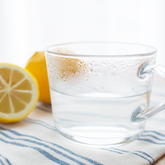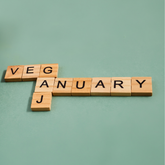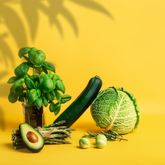In an age dominated by environmental concerns, the synergy between veganism and sustainable living has gained unprecedented significance. Our daily choices, especially those pertaining to our diets, wield considerable influence over the well-being of our planet. In this blog, we will delve into the intricate relationship between veganism and sustainable living, examining how the adoption of a plant-based lifestyle aligns seamlessly with eco-friendly practices. Furthermore, we will spotlight a pragmatic solution that not only amplifies sustainability efforts but also invites a touch of creative DIY spirit – the process of making plant milk at home.
At its essence, veganism represents a lifestyle committed to minimizing harm to animals by abstaining from the consumption of animal products. Yet, the advantages of embracing a vegan lifestyle extend beyond mere animal welfare, encompassing the broader realm of environmental impact. The meat and dairy industry stand as significant contributors to deforestation, water pollution, and greenhouse gas emissions. Opting for plant-based alternatives empowers individuals to substantially reduce their carbon footprint, actively contributing to the preservation of ecosystems. Sustainable living, therefore, becomes intricately entwined with veganism as it champions choices that are ecologically responsible and bear positive consequences for our planet.

Deforestation: The relentless expansion of animal agriculture often leads to deforestation, sacrificing vast tracts of forests to pave the way for livestock farming.
Water Consumption: The insatiable demands of animal farming for water, both for the animals and the crops they consume, contribute to excessive water usage. Opting for plant-based foods emerges as a conscientious choice, reducing water consumption and aiding in the conservation of this precious resource.
Greenhouse Gas Emissions: Livestock, particularly cows, emit methane, a potent greenhouse gas. The conscious reduction in meat and dairy consumption directly aids in mitigating climate change.
Plant-Based Lifestyle and Sustainable Choices

- Reducing Carbon Footprint: Plant-based diets inherently boast a lower carbon footprint in comparison to diets rich in animal products. A diet centered around fruits, vegetables, grains, and legumes proves to be more resource-efficient and environmentally friendly.
- Preserving Biodiversity: The land and resources dedicated to animal farming could be repurposed for sustainable agriculture, fostering biodiversity and safeguarding endangered species.
- Conserving Water: The production of plant-based foods demands less water than raising livestock. By choosing plant-based alternatives, individuals actively engage in water conservation efforts.

Making Plant Milk at Home
While a myriad of plant-based milk options grace the shelves of grocery stores, the process of making plant milk at home presents a sustainable alternative. Here's why:
- Reduced Packaging Waste: Commercially available plant milk often arrives in cartons or plastic containers, contributing to packaging waste. Crafting your own plant milk empowers you to minimize packaging waste, embodying a commitment to a zero-waste lifestyle.
- Ingredient Control: Crafting homemade plant milk affords you precise control over the ingredients, ensuring the exclusion of additives or preservatives. This not only elevates nutritional value but also eradicates the environmental impact associated with the processing and transportation of commercial alternatives.
- Cost-Effectiveness: The practice of making plant milk at home proves economically advantageous in the long run. Purchasing nuts, seeds, or grains in bulk and utilizing them to concoct your own milk emerges as a thrifty and sustainable alternative to pre-packaged options.

In conclusion, the undeniable synergy between veganism and sustainable living beckons us towards a conscious and responsible lifestyle. The practice of making plant milk at home, extends beyond being a sustainable solution – it is a transformative act of self-sufficiency. Try using Milky Plant, it grants you complete control over ingredients and delivers fresh, homemade plant milk in a mere 3 minutes. As we navigate the journey towards a more sustainable future, these choices, no matter how seemingly small, collectively plant the seeds of positive change for our planet and future generations.















